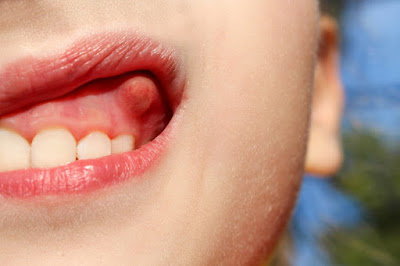Introduction:
A mouth abscess, also known as a dental abscess or tooth
abscess, is a painful condition that occurs when pus collects in a localized
area within the mouth. It is often caused by a bacterial infection that affects
the tooth or surrounding gum tissues. Prompt and appropriate mouth abscess
treatment is crucial to alleviate discomfort, prevent complications,
and restore oral health. This blog will explore various treatment options for
mouth abscesses, ranging from self-care measures to professional dental
interventions.
I. Understanding Mouth Abscess:
Before delving into treatment options, let's briefly
understand a mouth abscess and its underlying causes. A mouth abscess typically
develops when bacteria invade the soft tissues surrounding the tooth root or
when the tooth's pulp chamber becomes infected. Common causes include untreated
tooth decay, gum disease, cracked teeth, or prior dental procedures.
II. Self-Care Measures:
Warm Saltwater Rinse:
·
Rinse your mouth with a warm saltwater solution
(1/2 teaspoon of salt in 8 ounces of water) several times a day.
·
Saltwater helps reduce swelling, alleviate
discomfort, and promote healing.
Over-the-counter Pain Relief:
·
Nonsteroidal anti-inflammatory drugs (NSAIDs)
like ibuprofen can help manage pain and reduce inflammation.
·
If you have any underlying medical issues, take
the medication as directed and seek medical advice.
III. Dental Interventions:
Dental Drainage:
·
In cases where the abscess is localized and
accessible, the dentist may create a small incision to drain the pus and
relieve pressure.
·
This treatment speeds up healing and is
typically carried out under local anesthesia.
Root Canal Treatment:
·
If the abscess is caused by an infected tooth
pulp, root canal treatment may be recommended.
·
The infected pulp is removed by the dentist, who
also cleans and fills the root canal.
·
Root canal treatment eliminates the infection,
preserves the tooth, and prevents further complications.
Extraction:
·
In severe cases where the tooth is extensively
damaged or cannot be saved, extraction may be necessary.
·
The dentist will carefully remove the affected
tooth, and various tooth replacement options can be explored.
IV. Antibiotics:
Prescription Antibiotics:
·
To treat the illness and stop it from spreading,
doctors may give antibiotics.
·
It's crucial to take the recommended dosage and
finish the entire course of antibiotics as instructed.
Antibacterial Mouth Rinse:
In some cases, the dentist may recommend an antibacterial
mouth rinse to reduce bacterial load in the mouth and promote healing.
V. Post-Treatment Care:
Oral Hygiene:
·
By brushing your teeth twice a day and flossing
every day, you may maintain proper oral hygiene.
·
Brush your teeth and gums with a soft-bristled
toothbrush and fluoridated toothpaste.
Follow-up Visits:
·
Attend follow-up visits with your dentist as
scheduled.
·
Regular check-ups help monitor healing progress
and ensure the abscess has been completely resolved.
Conclusion:
Mouth abscesses can cause significant pain and discomfort,
but the condition can be effectively managed with proper treatment. Self-care
measures such as saltwater rinses and over-the-counter pain relief can provide
temporary relief, while dental interventions like drainage, root canal
treatment, or extraction may be necessary for long-term resolution. Antibiotics
may also be prescribed to control the infection. Remember to maintain good oral
hygiene and attend follow-up visits to promote healing and prevent future
abscesses. If you're experiencing symptoms of a mouth abscess, it is crucial to
consult a dental professional for an accurate diagnosis and appropriate
treatment.

Comments
Post a Comment